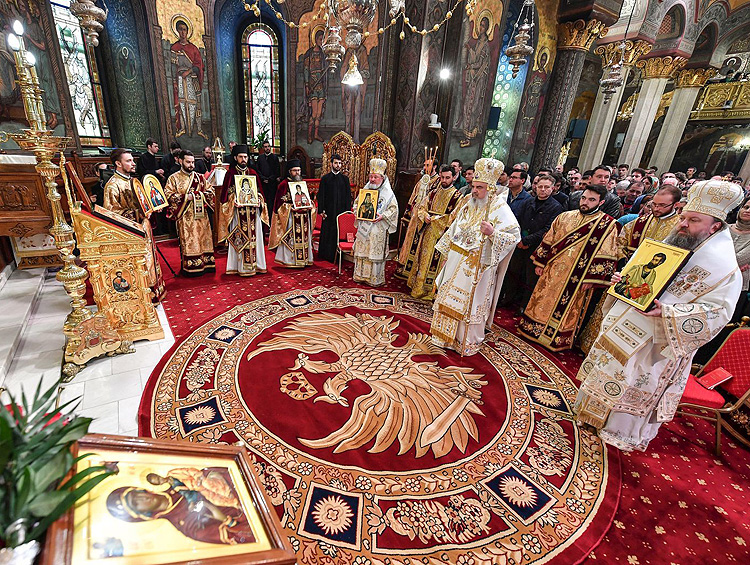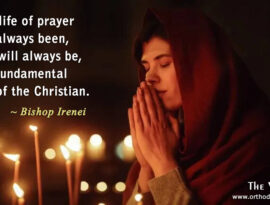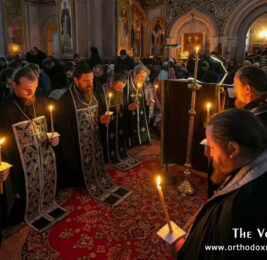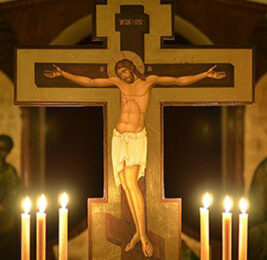 The masterful and wisdom-filled writings of G. K. Chesterton remind us why the Christian Church cannot afford to swerve even “a hair’s breadth” on important theological truths. While not written with regards to the Orthodox Church specifically, his insights also describe how the Orthodox Church has continually fought to defend the Truth and the Christian faith as taught by Jesus Christ, embodied in the Scriptures, preached by the Apostles, attested by the Martyrs, reflected in the writings of the Saints, and expounded by the Fathers.
The masterful and wisdom-filled writings of G. K. Chesterton remind us why the Christian Church cannot afford to swerve even “a hair’s breadth” on important theological truths. While not written with regards to the Orthodox Church specifically, his insights also describe how the Orthodox Church has continually fought to defend the Truth and the Christian faith as taught by Jesus Christ, embodied in the Scriptures, preached by the Apostles, attested by the Martyrs, reflected in the writings of the Saints, and expounded by the Fathers.
Chesterton writes:
“Last and most important, it is exactly this which explains what is so inexplicable to all the modern critics of the history of Christianity. I mean the monstrous wars about small points of theology, the earthquakes of emotion about a gesture or a word.
The Church could not afford to swerve a hair’s breadth on some things
It was only a matter of an inch; but an inch is everything when you are balancing. The Church could not afford to swerve a hair’s breadth on some things if she was to continue her great and daring experiment of the irregular equilibrium. Once let one idea become less powerful and some other idea would become too powerful.
It was no flock of sheep the Christian shepherd was leading, but a herd of bulls and tigers, of terrible ideals and devouring doctrines, each one of them strong enough to turn to a false religion and lay waste the world. Remember that the Church went in specifically for dangerous ideas; she was a lion tamer.
The idea of birth through a Holy Spirit, of the death of a divine being, of the forgiveness of sins, or the fulfilment of prophecies, are ideas which, any one can see, need but a touch to turn them into something blasphemous or ferocious. The smallest link was let drop by the artificers of the Mediterranean, and the lion of ancestral pessimism burst his chain in the forgotten forests of the north. Of these theological equalisations I have to speak afterwards.
The Church had to be careful, if only that the world might be careless.
Here it is enough to notice that if some small mistake were made in doctrine, huge blunders might be made in human happiness. A sentence phrased wrong about the nature of symbolism would have broken all the best statues in Europe. A slip in the definitions might stop all the dances; might wither all the Christmas trees or break all the Easter eggs. Doctrines had to be defined within strict limits, even in order that man might enjoy general human liberties.
The Church had to be careful, if only that the world might be careless.” ~ G. K. Chesterton
_______________________________________________
Excerpts from the book “Orthodoxy” by G. K. Chesterton
G.K. Chesterton wrote Orthodoxy as a defense of the Christian faith. It was meant to be a companion to the book Heretics wrote previously. Orthodoxy constructs an “alternative philosophy” to the philosophies of the time. Chesterton provides insights into why he believed that orthodox Christianity best explains human existence and why he did not find other worldly philosophies convincing or plausible.
Note: Chesterton uses “orthodoxy” and “orthodox” to mean the Apostles’ Creed, as understood by all who call themselves Christians … at least until the beginning of the 20th century.
(Organizational edits — broke up larger paragraphs into smaller ones, and added headings — to optimize readability made by Chris Banescu.)





Wasn’t Chesterton a convert to Roman Catholicism? And wasn’t his book ‘Orthodoxy’ about the Roman Catholic Church?
Chesterton was an Anglican and eventually converted to the Catholic Church. His apologetic work regarding the Church are just as applicable to the Orthodox Church even though his writings only reference “the Church” which he often refers to as the traditional Christian Church (High Anglican or Catholic Church).
Sorry Chris. I just re-read the first paragraph. I can’t believe I didn’t see that.